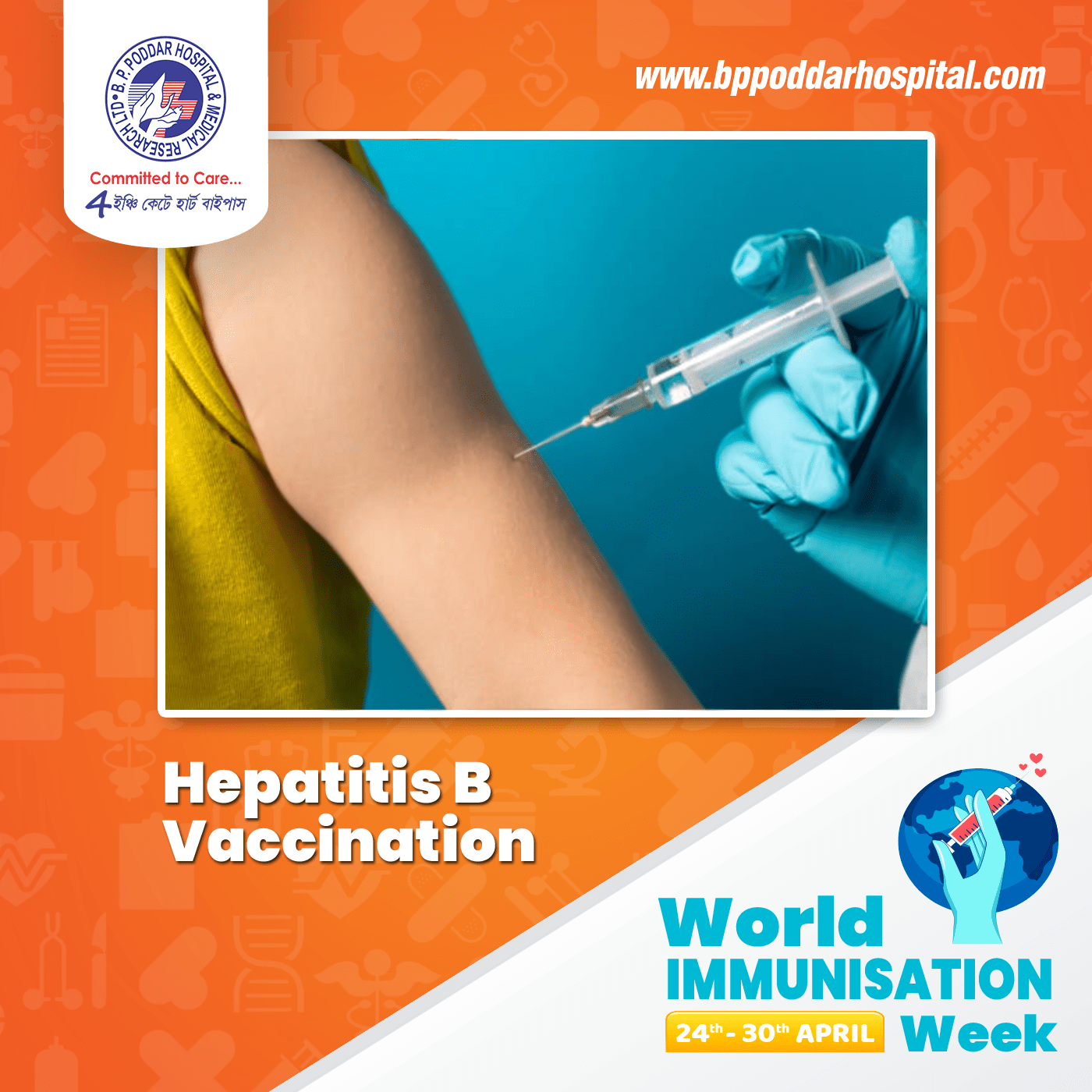
HEPATITIS B VACCINATION
28 April, 2023
The hepatitis B vaccination can guard against the disease. Hepatitis B is a liver condition that can result in a short-lived, moderate sickness or a severe, chronic condition.
- Short-term acute hepatitis B infection symptoms include fever, exhaustion, appetite loss, nausea, vomiting, jaundice (yellow skin or eyes, dark urine, clay-colored stools), and pain in the muscles, joints, and stomach.
- When the hepatitis B virus persists in a person's body for an extended period of time, they develop chronic hepatitis B infection. The majority of persons who go on to acquire chronic hepatitis B do not exhibit any symptoms, yet the condition is nonetheless highly hazardous and can result in death, liver cancer, and liver damage (cirrhosis). Even though they do not themselves seem or feel ill, those who have a chronic infection can nevertheless transmit the hepatitis B virus to others.
When blood, semen, or other bodily fluid containing the hepatitis B virus enters the body of a person who is not afflicted, hepatitis B is transmitted. People may get an infection by:
- Birth (a pregnant person with hepatitis B risks infecting their unborn child)
- Sharing objects like toothbrushes or razors with an infected individual
- contact with an infected person's blood or open sores
- Sex with a partner who is infected
- Sharing syringes, needles, or other drug injection tools
- exposure to blood through the use of needles or other sharp objects
The majority of persons who receive the hepatitis B vaccination are permanently immune.
The standard dosage for the hepatitis B vaccination is 2, 3, or 4.
- Hepatitis B vaccination for infants should begin at birth, with the final dose given between 6 and 18 months of age. An essential component in stopping children' long-term illnesses and the spread of hepatitis B in the US is the birth dose of the hepatitis B vaccine.
- All children and teenagers under the age of 19 who have not received the vaccination yet should do so.
- The vaccine is also available for adults who wish to be protected against hepatitis B but have never had a vaccination.
The following individuals are also advised to have the hepatitis B vaccine:
- people who have hepatitis B in their sex relationships
- People who are sexually active but not in a committed, monogamous relationship Those seeking testing or treatment for an STD
- sexual assault or abuse victims
- males who interact romantically with other males
- People who reside with someone who has the hepatitis B virus People who share needles, syringes, or other drug-injection supplies
- Public safety and healthcare employees who may be exposed to blood or bodily fluids
- Residents and employees of developmentally handicapped facilities
- Those who are incarcerated or in prison Visitors to areas with higher hepatitis B infection rates
- People with HIV, hepatitis C, chronic liver disease, and renal disease who are on dialysis
Hepatitis B vaccine can be administered as a standalone injection or as a component of a combination vaccination, which is a form of vaccine that contains multiple shots of different vaccines.
The hepatitis B vaccination may be administered concurrently with other shots.
